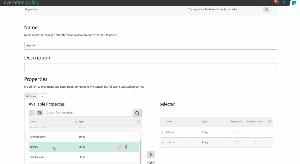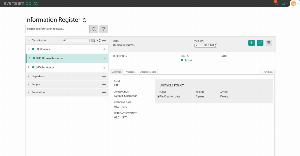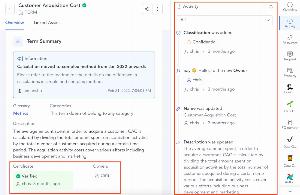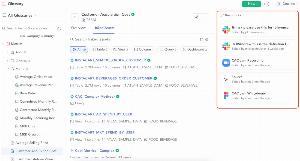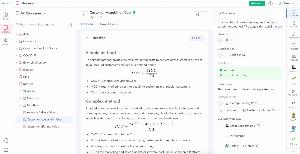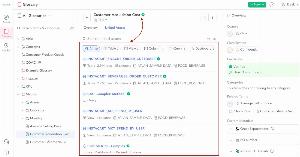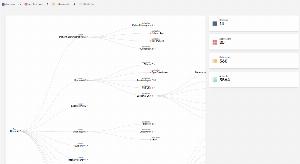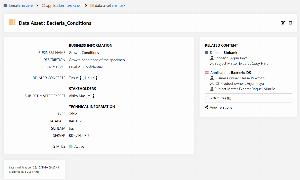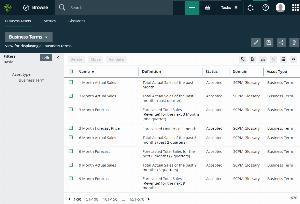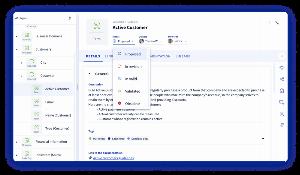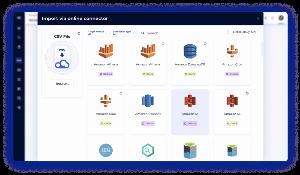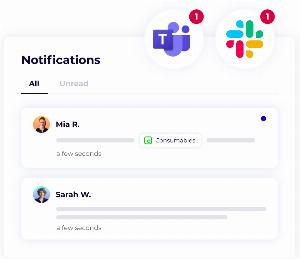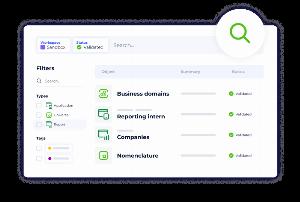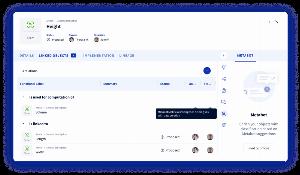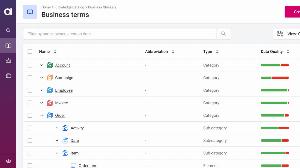Business Glossary tools
List of tools that help build, maintain an share business glossaries.
Business Glossary is a collection of definitions and terms used within a business unitorganization. It is not used to define data, but rather to define what a particular term means from a business perspective. The definitions are mapped and logically linked to entities in the database. This enables structured communication between teams and allows them to reveal potential errors resulting from incorrect nomenclature.
Everteam
Everteam is an effective tool for capturing, documenting, and maintaining retention and governance policies for the entire enterprise. It is a simple-to-use SaaS solution that allows organizations to quickly develop, publish, and maintain enterprise-wide information policies.
| Data Policies and Rules: |
|
|---|---|
| Export: | - |
| Integration with Technical Metadata: |
|
| Linkage to reports/apps: |
|
| Reference data: |
|
| Support for workflow: |
|
Atlan
Atlan Business Glossary allows data producers and consumers in an organization to create a living tribal knowledge network across all of their data assets. Powered by a knowledge graph, Atlan allows users to define business terms, categories, policies, relationships and more. Atlan's machine learning based bot ecosystem automates several repetitive tasks associated with maintaining a business glossary such as auto tagging business glossary terms to data assets, propagating classification and glossary tagging rules via lineage, bulk associate glossary terms to data assets via an API and more. Its easy to use google like search interface makes it easy for business users to find the meaning of business terms within seconds while ensuring the compliance of business metadata across the enterprise.
| Data Policies and Rules: |
|
|---|---|
| Export: | - |
| Integration with Technical Metadata: |
|
| Linkage to reports/apps: |
|
| Reference data: |
|
| Support for workflow: |
|
Sidecar
Sidecar business glossary allows you to easily enrich all your data assets with business context, clear definitions, rules and transformations to bring clarity to data consumers. Foster team work among the user community by exchanging ideas on data assets with the collaboration tool. Add custom tags and classifications to organize your assets and manage your sensitive data by building a comprehensive business glossary across your company.
| Data Policies and Rules: |
|
|---|---|
| Export: | CSV,XML |
| Integration with Technical Metadata: |
|
| Linkage to reports/apps: |
|
| Reference data: |
|
| Support for workflow: |
|
Select Star
Select Star has a metrics feature that allows you to define key terms and values based on data that aim to answer specific business questions. Select Star can automatically detect dimensions that you may want to group or pivot on, but you can remove these if desired or search for others.
| Data Policies and Rules: |
|
|---|---|
| Export: | CSV |
| Integration with Technical Metadata: |
|
| Linkage to reports/apps: |
|
| Reference data: |
|
| Support for workflow: |
|
Collibra Catalog
Collibra is a data governance and management platform that offers a robust business glossary tool, enabling organizations to define and maintain consistent definitions for business terms, metrics, and data elements. It helps ensure clear communication and understanding across departments by providing a centralized repository for standardized terminology, which supports data consistency, compliance, and improved decision-making.
| Data Policies and Rules: |
|
|---|---|
| Export: | CSV,MS Excel |
| Integration with Technical Metadata: |
|
| Linkage to reports/apps: |
|
| Reference data: |
|
| Support for workflow: |
|
Dawiso
Dawiso serves as a business glossary tool that helps organizations define and manage key business terms consistently across teams. It centralizes definitions, ensuring a shared understanding of terms and improving communication around data assets.
| Data Policies and Rules: | - |
|---|---|
| Export: | MS Excel |
| Integration with Technical Metadata: |
|
| Linkage to reports/apps: |
|
| Reference data: |
|
| Support for workflow: |
|
DataGalaxy
DataGalaxy is a collaborative data governance platform that features a powerful business glossary tool designed to help organizations create and manage a centralized repository of business terms and definitions. This tool fosters alignment across teams by enabling users to document, share, and maintain a shared understanding of terminology, enhancing data literacy and promoting effective communication. With its intuitive interface and integration capabilities, DataGalaxy supports organizations in driving data quality, compliance, and informed decision-making.
| Data Policies and Rules: |
|
|---|---|
| Export: | CSV,MS Excel,XML |
| Integration with Technical Metadata: |
|
| Linkage to reports/apps: |
|
| Reference data: |
|
| Support for workflow: |
|
Ataccama ONE
Ataccama serves as a robust business glossary tool within its data governance platform, allowing organizations to define, organize, and manage business terms, their hierarchies, and relationships. It supports collaboration by linking business terms to data assets, ensuring consistent understanding across teams.
| Data Policies and Rules: |
|
|---|---|
| Export: | CSV,JSON,MS Excel,PDF,XML |
| Integration with Technical Metadata: |
|
| Linkage to reports/apps: |
|
| Reference data: |
|
| Support for workflow: |
|
There are many tools for creating business glossaries. Whether sophisticated or not, they allow to create:
• access and alternate names,
• descriptions,
• explanations of how to calculate metrics,
• links to other elements.
To ensure access to all terms from different platforms, many business glossary tools are cross-platform compatible. More advanced tools provide a workflow to ensure that term definitions are updated and approved. In addition to the glossary creation features, the tools allow you to export to user-friendly and easy-to-share formats like PDF and HTML.
Proper communication between teams in an organization is crucial for the success of the project. Similarly, it is important to interpret data correctly. Each of the teams working together (business team, developers, marketing teams), use different nomenclature and terms. Within a team the logical meaning of data elements, acronyms, etc. are defined and understood only by a narrow group of members. This makes the area of inconsistency really wide. Even small misunderstandings can lead to fatal consequences. This is where the business glossary comes into play.
What's more, using glossaries not only makes the communication more reliable, but also improves efficiency and speeds up the decision-making process (e.g. wondering if "customer" means a single person, an organization, and repeating the consideration next time the project is approached).
In our list, we have included noteworthy business tools for creating and reviewing business glossaries.
 SQL Server
SQL Server
 Oracle
Oracle
 MySQL
MySQL
 PostgreSQL
PostgreSQL
 Amazon Redshift
Amazon Redshift
 Azure SQL Database
Azure SQL Database
 DBT
DBT
 Google Big Query
Google Big Query
 IBM DB2
IBM DB2
 MariaDB
MariaDB
 SAP HANA
SAP HANA
 Snowflake
Snowflake
 SQLite
SQLite
 Teradata
Teradata
 Vertica
Vertica
